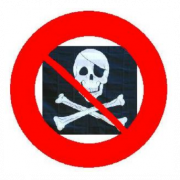Captain Hook Awards for Biopiracy 2008
Submitted by ETC Staff on
Today (21. May 2008) the world learned which corporations, governments, institutions and individuals earned a spot in biopiracy’s hall of shame when the Coalition Against Biopiracy (CAB) announced the winners of the 5th Captain Hook Awards at a lunch-time ceremony during the Ninth Conference of the Parties (COP9) to the Convention on Biological Diversity (CBD) in Bonn, Germany.


